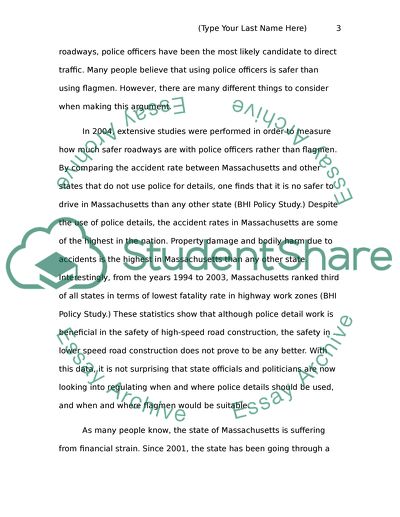Cite this document
(Police Details: The Corrupted Cash Cow for Cops Essay, n.d.)
Police Details: The Corrupted Cash Cow for Cops Essay. https://studentshare.org/social-science/1516265-police-details-in-massachusetts
Police Details: The Corrupted Cash Cow for Cops Essay. https://studentshare.org/social-science/1516265-police-details-in-massachusetts
(Police Details: The Corrupted Cash Cow for Cops Essay)
Police Details: The Corrupted Cash Cow for Cops Essay. https://studentshare.org/social-science/1516265-police-details-in-massachusetts.
Police Details: The Corrupted Cash Cow for Cops Essay. https://studentshare.org/social-science/1516265-police-details-in-massachusetts.
“Police Details: The Corrupted Cash Cow for Cops Essay”. https://studentshare.org/social-science/1516265-police-details-in-massachusetts.


